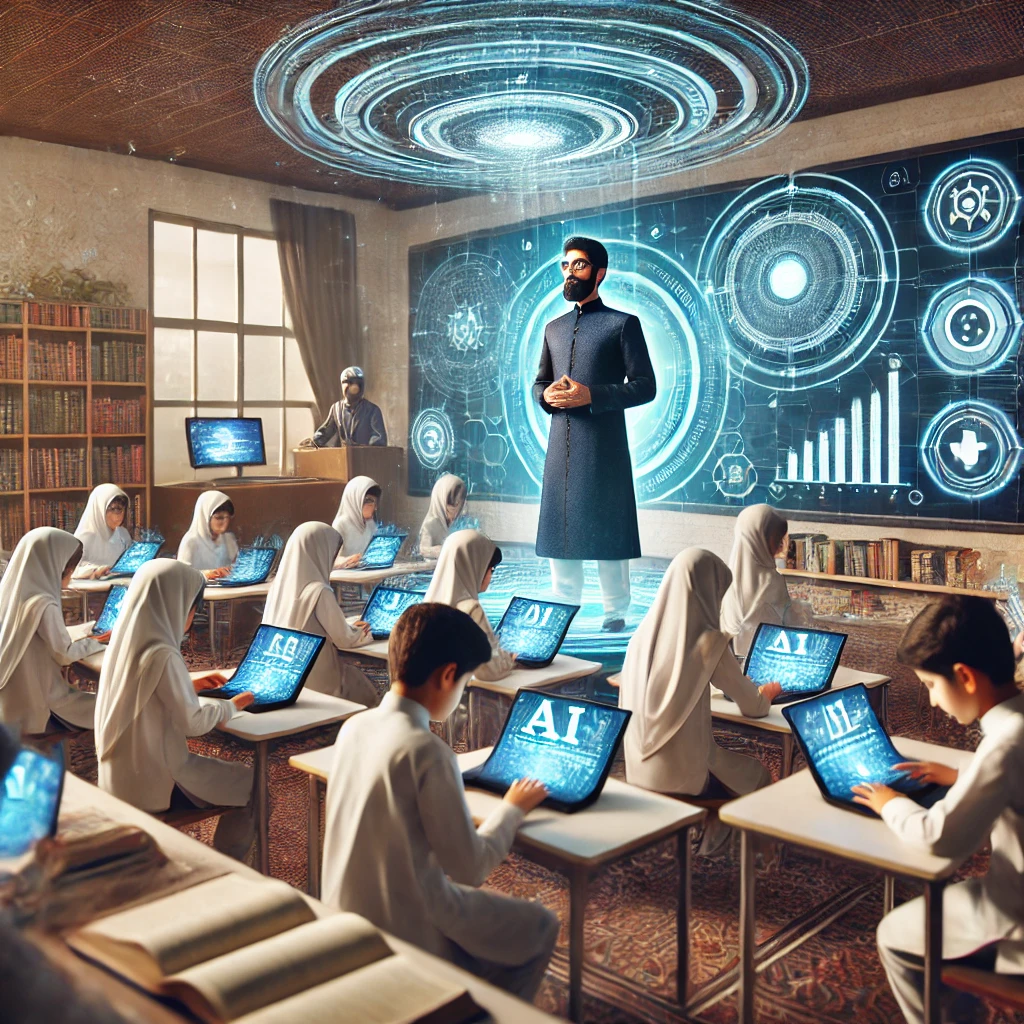Dr. Zaidi further stated that AI tools can now generate educational content tailored to students’ cognitive levels and learning speeds. Machine learning algorithms can identify students’ strengths and weaknesses and recommend specific lessons accordingly. He explained, “Chatbots and virtual teachers can now instantly respond to students’ queries, while automated assessment systems are simplifying assignment evaluation. AI-based systems will help eliminate exam-related malpractices, monitor online exams, and automate grading, reducing teachers’ workload.”
Can AI Change Attitudes Towards the Transgender Community?
Artificial intelligence holds great potential for improving Pakistan’s education sector, but it seems that government circles have yet to fully recognize its significance. In universities like NUST, LUMS, and FAST, serious discussions are underway about the educational use of AI tools. Dr. Mirza Mubashir Baig, a professor at FAST University, told that AI is being experimented with in various projects in Pakistan and other countries. He believes AI can significantly enhance Pakistan’s education system by enabling the creation of smart classrooms and automated teaching and examination systems.
Professor Dr. Rafia Rafiq, Head of the Institute of Applied Psychology at Punjab University, told DW that AI can make data analysis easier for students and researchers. AI-based software can assist in writing and analyzing research papers.
However, bringing an educational revolution through AI is not easy, particularly because students and teachers in Pakistan’s public institutions lack access to the internet and modern technology. Strong policies are needed to protect educational data and ensure the security of student and teacher information.
Dr. Shabana Asghar, a professor at Lahore College for Women University, emphasized that for AI to be used effectively, all education stakeholders—teachers, students, researchers, and policymakers—must be fully aware of its potential. Otherwise, its unchecked use could lead to negative consequences.
Pakistan Announces AI Policy Implementation
Dr. Mubashir Baig from FAST University believes that regulations must be established to ensure the ethical use of AI. Without proper rules, there is a risk of misuse, including the creation of fake assignments, plagiarism, and cheating. Similarly, Dr. Rafia Rafiq emphasized that the Pakistani government must develop a comprehensive strategy to ensure AI is used responsibly and effectively.
Maryam Naqvi, Assistant Professor at the Center for South Asian Studies at Punjab University, noted that AI adoption in Pakistan’s education sector remains limited. Currently, students use it individually, and some private universities are incorporating it into their curriculum. She mentioned that a private university in Lahore Cantonment has even introduced AI as a subject, but it remains to be seen what policies the government will implement in this regard.
A student named Laiba Ghaffar shared that tools like ChatGPT provide quick access to information, particularly for literature reviews. However, she warned that over-reliance on such tools could be dangerous, as students might complete entire theses without critical thinking, leading to little actual learning.
Digital Transformation: Pakistan Among the Fastest-Changing Nations
Another student, Zahid Saleem, expressed skepticism about AI’s potential impact in Pakistan. He pointed out that the government frequently shuts down internet services and restricts social media platforms to suppress opposition. “We fear that if the government is misinformed, AI and ChatGPT could also be banned in Pakistan,” he said.
Originally published in DW







